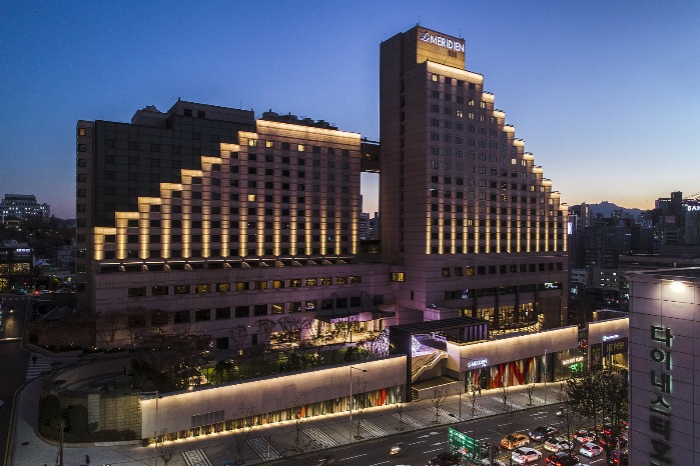Real estate
Korea's hotel deals hit record-high $1.4 bn in 2021: JLL
Undersupply will benefit the market in the short term; demand will grow fast from late March with increasing foreign visitors
By Mar 23, 2022 (Gmt+09:00)
2
Min read
Most Read
LG Chem to sell water filter business to Glenwood PE for $692 million


Kyobo Life poised to buy Japan’s SBI Group-owned savings bank


KT&G eyes overseas M&A after rejecting activist fund's offer


StockX in merger talks with Naver’s online reseller Kream


Mirae Asset to be named Korea Post’s core real estate fund operator



Hotel deals in South Korea hit a record high of 1.7 trillion won ($1.4 billion) in 2021, up 80% from the previous year, said global real estate services firm Jones Lang LaSalle Inc. in a report on March 23.
The buying and selling of hotels in Korea will reach around 1.2 trillion won this year, backed by the rising number of changes in property use, redevelopments and increased attention from overseas investors, said JLL. Also, the domestic hotel market will recover in earnest late this month as the government on March 21 began self-quarantine exemptions for entrants from overseas who are fully vaccinated, the report added.
The domestic hotel market will benefit from undersupply in the short term, JLL said. Changes in the property use and redevelopment have reduced supply -- 110 hotel rooms were sold for property use alterations in 2019, and the number soared to 755 in 2020 and 2,160 last year. Among them are upscale hotels like Le Meridien Seoul Hotel, Sheraton Seoul Palace Gangnam Hotel, Sheraton Seoul D Cube City Hotel and Haeundae Grand Hotel. Also, supply growth will be slow due to increased land acquisition costs and lowered incentives from hotel developments.
Korea's hotel market will recover fast thanks to the growing popularity of K-culture and traveler demand, said JLL Korea’s Vice President Min-joon Kim. The country is becoming a more attractive destination for real estate investors as it enables hotel master leases and various investment structures including sale-leasebacks and equity transactions, Kim said.
However, Korea’s real estate market is still moderately volatile, leaving investors and lenders wary of hotel properties in the near term, Kim added. The pricing expectations of sellers and buyers remain difficult to bridge even though the expectation gap will decrease in line with the market recovery, he said.
The country’s quarantine exemption will boost foreign visitors’ demand for hotels, according to the report. However, the main Chinese group tourists, who prefer budget hotels, will only gradually come back in the post-pandemic era, leaving the occupancy rate low for some time despite the higher average daily rate (ADR). The number of Chinese tourists plunged to fewer than 200,000 last year from 6 million in 2019 and is set for only a slow recovery until around 2025.
On the other hand, Korea will have more visitors from North America, Europe, Japan and Southeast Asia, thus upscale hotels will have more demand in the short term, the report said. Korea-based luxury hotels’ revenue per available room (RevPAR) in 2021 has recovered 86% compared with 2019, thanks to the staycation boom, while budget hotels recovered 66% during the same period.
Write to A-Young Yoon at youngmoney@hankyung.com
Jihyun Kim edited this article.
More to Read
-
 Alternative investmentsOffice deals in Seoul hit record-high $14 bn in 2021: JLL
Alternative investmentsOffice deals in Seoul hit record-high $14 bn in 2021: JLLFeb 03, 2022 (Gmt+09:00)
3 Min read -
 Alternative investmentsHyundai E&C to inject $343 mn in Hilton Seoul redevelopment
Alternative investmentsHyundai E&C to inject $343 mn in Hilton Seoul redevelopmentJan 11, 2022 (Gmt+09:00)
2 Min read -
 Real estateTime to invest in luxury hotels in Korea: JLL executive
Real estateTime to invest in luxury hotels in Korea: JLL executiveSep 28, 2021 (Gmt+09:00)
4 Min read -
 Travel & LeisureShinsegae Group unveils Josun Palace, its first super-luxury hotel
Travel & LeisureShinsegae Group unveils Josun Palace, its first super-luxury hotelMay 24, 2021 (Gmt+09:00)
1 Min read
Comment 0
LOG IN


